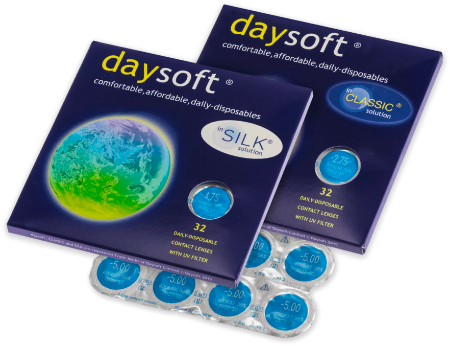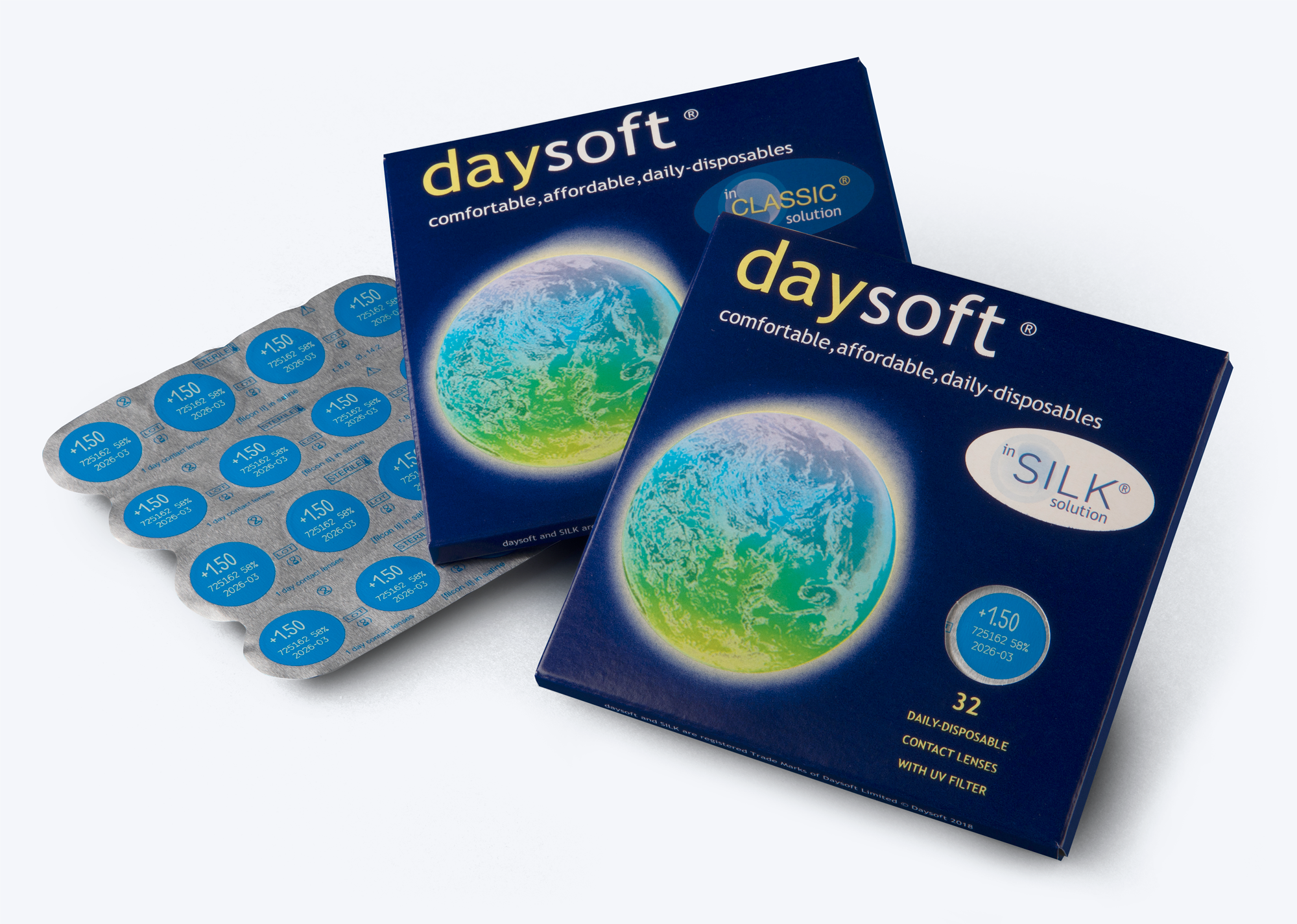Congratulations, mama-to-be! Welcome to the sometimes surprising journey of pregnancy. You may be ready for morning sickness or swollen ankles, but what about dry eyes and blurry vision? Hormonal changes during pregnancy can affect your eyes and sight, so what does this mean for wearing contact lenses?
If you’re wondering: can I wear contact lenses during pregnancy, you’ve come to the right place. Let’s find out what your pregnancy means for you as a contact lens wearer, so you can cope with any symptoms and make informed decisions about your eye health during this transformative period.

Are contact lenses safe to wear when pregnant?
The short answer is, yes, in most cases, it’s perfectly safe to continue wearing your contact lenses during pregnancy. However, studies suggest that new glasses and contact lens prescriptions should be avoided during pregnancy, and are best postponed for several weeks after giving birth.
One common concern among pregnant women is the risk of developing eye infections while wearing contact lenses. While the risk is generally low, it’s essential to maintain proper hygiene practices when handling your lenses. Be sure to thoroughly wash your hands with soap and water and dry them thoroughly before inserting or removing your lenses. Never sleep in your contact lenses.
Why does my vision change during pregnancy?
Slight changes in vision are common when you’re expecting. During pregnancy, your body undergoes a multitude of hormonal changes, which can affect various aspects of your health, including your eyes. This is because your eyes are affected by the same hormonal fluctuations, fluid retention, and other physiological changes of pregnancy that contribute to related problems like bloating and swollen feet and ankles.
While these changes are typically mild and temporary, it’s essential to monitor your eye health closely and consult with your eye care professional if you notice any significant changes or discomfort. Let’s learn more about what these changes are and why they happen.
Dry eyes
One of the most common eye issues during pregnancy and breastfeeding is dry eyes. This is when your eyes don’t produce enough tears to keep them adequately lubricated, leading to discomfort, redness and a gritty sensation.
Increased sensitivity to light
Many pregnant women report heightened sensitivity to light, a condition known as photophobia. This sensitivity can make it challenging to tolerate bright lights or glare, leading to discomfort and eye strain. Hormonal changes during pregnancy can affect the pupil’s size and how the eyes react to light, contributing to increased sensitivity. Wearing sunglasses with UV protection and avoiding overly bright environments can help minimise discomfort.
Blurred vision
Blurry vision is another common complaint among pregnant women, particularly during the later stages of pregnancy. This can occur due to hormonal changes, fluid retention and increased pressure on the eyes and optic nerve. In some cases, changes in corneal curvature or thickness may also contribute to blurred vision.
Eye problems during pregnancy
Most issues are usually minor and temporary and your sight should return to normal after your baby is born. However, some issues linked to pregnancy may require medical attention. Pre-eclampsia and gestational diabetes are serious medical conditions that can affect both maternal and foetal health during pregnancy. These conditions can also have implications for eye health, leading to potential vision changes and complications.
Pre-eclampsia, characterised by high blood pressure and protein in the urine, can affect the blood vessels in the eyes, leading to vision changes.
Similarly, uncontrolled diabetes can increase the risk of diabetic retinopathy, a condition that affects the blood vessels in the retina and can lead to vision loss. Pregnant women with pre-existing diabetes or preeclampsia should receive regular eye exams to monitor their eye health and detect any potential issues early.
Remember that every pregnancy is different. If you have any concerns or experience changes in your eye health, talk to your healthcare provider and optician. They can provide personalised advice and guidance.

10 contact lenses pregnancy tips
If you’re expecting and wearing contact lenses, here are some practical tips to keep your eyes healthy and comfortable throughout your pregnancy:
1. Consult with your optician
Before making any changes to your eye care routine, consult with your optician, especially during pregnancy when hormonal changes can affect your eyes.
2. Maintain good hygiene
Wash your hands with soap and water thoroughly and dry them thoroughly before handling your contact lenses to prevent the risk of infection.
3. Use pregnancy-safe eye drops
Ask your optician about using pregnancy-safe over-the-counter or prescription eye lubricants that are compatible with contact lens wear.
4. Take breaks from screen time
Pregnancy can sometimes exacerbate eye strain and discomfort, especially if you spend long hours in front of a screen. Take regular breaks to rest your eyes and reduce fatigue.
5. Listen to your body
Prioritise your comfort and well-being. If wearing contact lenses becomes uncomfortable or challenging during pregnancy, don’t hesitate to switch to glasses temporarily.
6. Stay hydrated
Proper hydration is essential for maintaining healthy eyes and overall well-being, especially during pregnancy. Drink plenty of water throughout the day to stay hydrated and prevent dehydration, which can contribute to dry eyes and discomfort. Herbal teas, coconut water, and infused water with fruits and herbs are refreshing options to keep you hydrated.
7. Eat healthily
While you’re nurturing your growing baby, it’s essential to take care of your own health. A balanced diet rich in essential nutrients can and contribute to maintaining good eye health during pregnancy.
8. Follow your replacement schedule
Always follow the Instructions For Use provided with your daysoft® contact lenses. Daysoft only manufacture and sell daily disposable contact lenses because these are the healthiest type of contact lens to wear.
9. Protect your eyes from UV
If you spend time outdoors, wear sunglasses with UV protection to shield your eyes from harmful UV rays.
10. Attend regular eye exams
Continue attending regular eye exams during pregnancy to monitor any changes in your vision and ensure the health of your eyes.
Pregnancy is a beautiful and transformative journey, and wearing contact lenses shouldn’t stand in the way of your experience. By following proper hygiene practices, staying hydrated, and listening to your body, you can continue to enjoy clear vision and optimal eye health throughout your pregnancy.



